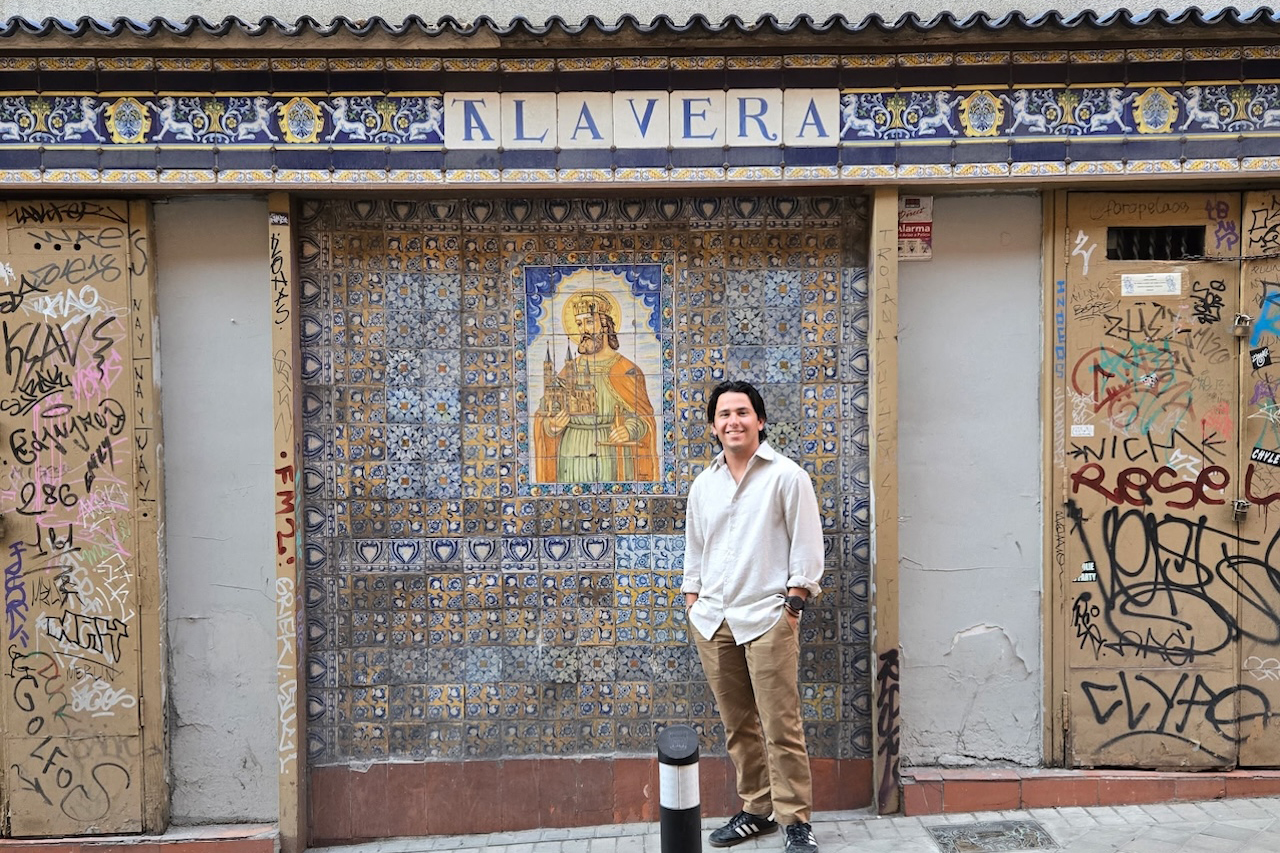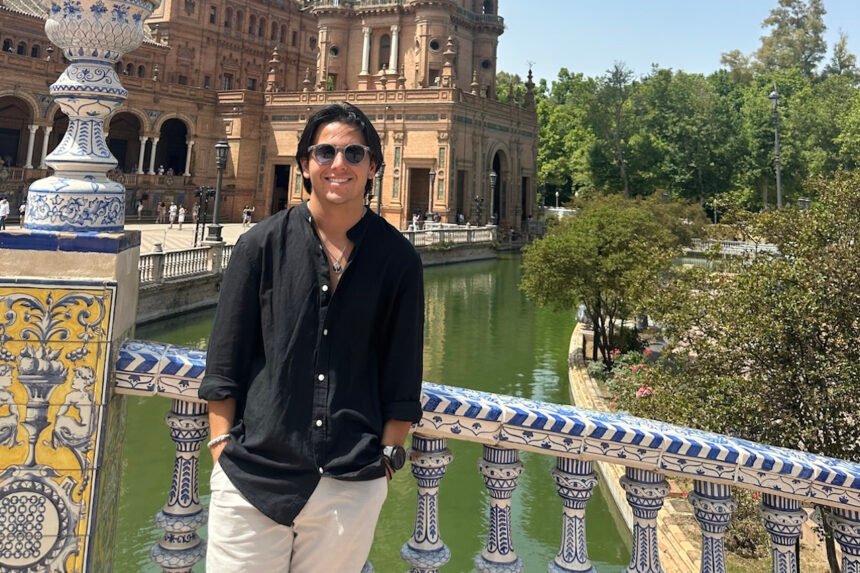Above: Dillon Garcia in Madrid, Spain
With the fans cheering and the pennants flying, Dillon Garcia watched Real Madrid at the Santiago Bernabeu Stadium in Madrid, Spain. The finance and economics double major and Spanish minor had followed the UEFA Europa League since he was a child, and always wanted to see a match live.
The opportunity to watch a live soccer match in Europe was just an extra benefit for Garcia: Just traveling to Spain to improve his Spanish was a dream come true.
Although he’d visited several of the Study Abroad Fairs held in Cougar Mall over the years, the Newport Beach, California, sailing team recruit thought studying abroad wasn’t possible because of his demanding training schedule.
A Fitting Plan
When Garcia learned about a four-week study abroad program in southern Spain that fit into his schedule, he took action.
First, he confirmed with his student-athlete academic advisor, Danielle Brown, that the program would fit into his four-year plan. Then, in his application, Garcia shared how being a Latino and not being able to speak Spanish his whole life made him feel out of place.
“I never felt like a real Latino around my Spanish-speaking friends or family, and I never really felt as American as my non-Spanish–speaking friends,” explains Garcia. “This has been something that has bothered me for a long time and is something that I have been trying to change. I believed studying abroad would give me that extra push to improve my skills and be more comfortable with myself.”
Not only was Garcia accepted into the program, but he received the School of Languages Cultures and World Affairs General Scholarship to help cover expenses. And so he was off to Sevilla, Spain, to immerse himself in Spanish culture – and knock out credits toward his minor at the same time.
Learning From the Locals

In Sevilla, Garcia took Spanish Conversation Abroad and the History of Spain with College of Charleston Hispanic studies instructor Colleen Moorman and senior instructor Devon Hanahan ’87.
“We had a small History of Spain class, but one [local] student who loved history joined us and contributed to the class,” says Garcia. “It was really cool.”
In addition to his classes, Garcia’s Spanish improved by living with a host family who spoke no English. They also helped him learn more about the culture.
He discovered the statement “Americans live to work, and Spaniards work to live” to be true.
“It’s hot, so they take things slower, with long lunch breaks and a siesta,” says Garcia. “They are much more active at night. Sometimes they don’t go out until midnight.
“Even the food, tapas, is more relaxed, and you have to find the waiter when you are ready to leave,” he adds. “Definitely different from the U.S.”
Now back in the U.S., Garcia has more confidence not only in his Spanish, but in himself. He also feels more comfortable making mistakes.
One mistake he won’t make? Missing out on seeing more of the world. He’s already making plans for his next trip abroad.
Students interested in studying abroad should check out study abroad scholarships through the Center for International Education.











